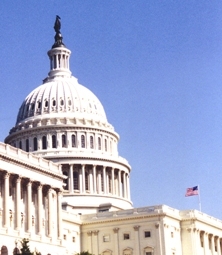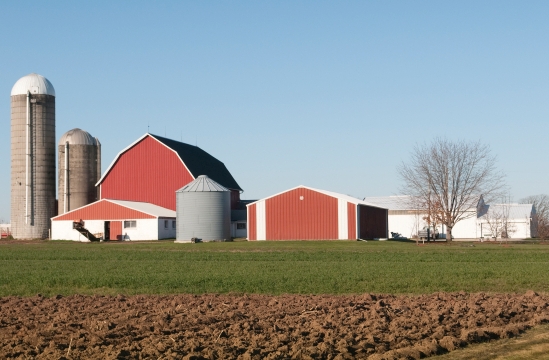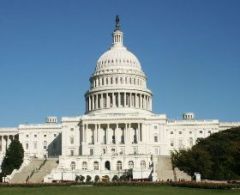 Indiana Republicans Adopt Dairy Security Act as Marker for Dairy Portion of Farm Bill
Indiana Republicans Adopt Dairy Security Act as Marker for Dairy Portion of Farm Bill
ARLINGTON, VA – Senior Senate Agriculture Committee member Dick Lugar (R-IN) has introduced a farm bill proposal that includes the dairy policy reforms advocated by the National Milk Producers Federation (NMPF), a development that NMPF welcomed today “as a major step forward in improving dairy policy.”
Lugar, a former chair of the Senate Ag Committee, and Rep. Marlin Stutzman (R-IN), a freshman member of the House Agriculture Committee, have jointly introduced a bill they call the Rural Economic Farm and Ranch Sustainability and Hunger Act (REFRESH). This bill would reduce farm program spending by $16 billion, and save a total of $40 billion compared to current policy. A complete bill summary and legislative draft of REFRESH may be found at www.stutzman.house.gov.
For the dairy title of the Farm Bill, the REFRESH legislation includes the key elements of the Dairy Security Act (DSA) of 2011, which previously was introduced in the House as HR 3062 by Reps. Collin Peterson (D-MN) and Mike Simpson (R-ID). The DSA is modeled after the extensive dairy reforms first proposed by NMPF. The DSA itself represents a 20 percent savings compared to the current dairy program budget, amounting to $131 million over ten years, according to the Congressional Budget Office.
“We appreciate Sen. Lugar and Rep. Stutzman recognizing the value of including the principles of NMPF’s Foundation for the Future in their Farm Bill proposal,” said Jerry Kozak, President and CEO of NMPF. “The REFRESH bill, along with the Dairy Security Act in the House, now gives us the opportunity in both chambers of Congress to push for dairy reforms that will give farmers protection, stability and growth.”
The key dairy policy changes in the REFRESH bill include: replacing the dairy price support (DPPSP) and milk income loss contract (MILC) programs with a voluntary margin protection program that covers 80 percent of the producers’ production history when margins fall below $4 per hundred-weight; giving producers the option of whether to enroll in a market stabilization program; and reforming the Federal Milk Marketing Order system by moving to a competitive pay price.
The National Milk Producers Federation, based in Arlington, VA, develops and carries out policies that advance the well being of dairy producers and the cooperatives they own. The members of NMPF’s 31 cooperatives produce the majority of the U.S. milk supply, making NMPF the voice of more than 40,000 dairy producers on Capitol Hill and with government agencies.




 House Bill Embodies Improved Version of Foundation for the Future Package
House Bill Embodies Improved Version of Foundation for the Future Package



